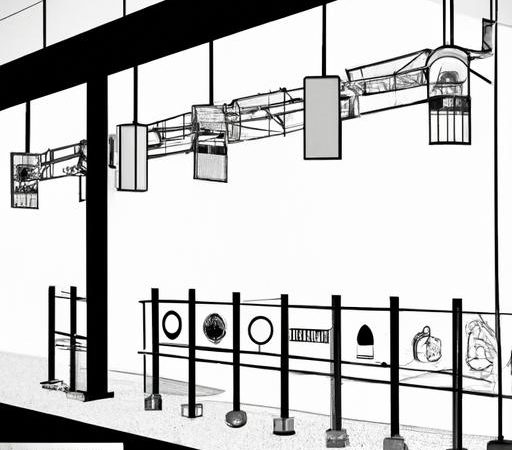Jet Lag Strategies: How to Quickly Adjust to New Time Zones


– What are some natural ways to alleviate jet lag symptoms?
Jet Lag Strategies: How to Quickly Adjust to New Time Zones
Traveling to different time zones can be exciting, but it can also wreak havoc on your internal clock. Jet lag, also known as desynchronosis, occurs when your body’s internal clock is out of sync with the time zone you are in. This can lead to fatigue, insomnia, digestive issues, and overall feelings of discomfort. However, there are strategies you can implement to help your body quickly adjust to the new time zone and minimize the effects of jet lag. In this article, we will explore some effective jet lag strategies that can help you make the most of your travels.
Understanding Jet Lag
Before we dive into jet lag strategies, it’s important to understand what causes jet lag in the first place. Our bodies operate on a 24-hour internal clock known as the circadian rhythm. This rhythm is influenced by external factors such as light, temperature, and social cues. When we travel to a new time zone, our internal clock is disrupted, leading to jet lag symptoms. The more time zones you cross, the more severe your jet lag is likely to be.
Common Symptoms of Jet Lag:
- Fatigue
- Insomnia
- Irritability
- Digestive Issues
- Poor Concentration
Jet Lag Strategies
Now that we understand the basics of jet lag, let’s explore some effective strategies to help your body adjust quickly to new time zones:
1. Adjust Your Sleep Schedule Before You Travel
Try shifting your sleep schedule a few days before you depart to align with the time zone of your destination. Gradually adjusting your bedtime and wake-up time can help ease the transition and reduce the impact of jet lag.
2. Stay Hydrated
Dehydration can worsen jet lag symptoms, so make sure to drink plenty of water before, during, and after your flight. Avoid excessive caffeine or alcohol, as they can disrupt your sleep patterns.
3. Get Some Sunlight
Exposure to natural sunlight can help regulate your circadian rhythm and signal to your body that it’s time to be awake. Spend time outdoors during daylight hours to help reset your internal clock.
4. Use Sleep Aids Wisely
If you are struggling to sleep in a new time zone, consider using sleep aids such as melatonin or over-the-counter medications. However, use them sparingly and consult with a healthcare professional before trying any new sleep aids.
Benefits of Overcoming Jet Lag
By implementing these jet lag strategies, you can minimize the negative effects of jet lag and enjoy your travels to the fullest. Overcoming jet lag can lead to a more enjoyable travel experience, increased productivity, and better overall well-being.
Practical Tips for Dealing with Jet Lag
Here are a few additional practical tips for dealing with jet lag:
1. Stay Active
Engage in light physical activity upon arrival to help combat fatigue and reset your internal clock.
2. Stick to Regular Meal Times
Try to eat meals at regular times in your new time zone to help regulate your body’s internal clock.
3. Stay Calm and Patient
Remember that it may take a few days for your body to fully adjust to the new time zone. Be patient with yourself and allow time for rest and relaxation.
Conclusion
Jet lag is a common issue for travelers, but with the right strategies and mindset, you can overcome its effects and adjust quickly to new time zones. By implementing these jet lag strategies and tips, you can enjoy a smoother travel experience and make the most of your adventures around the world.
Jet lag can be a major obstacle for travelers and can often leave us feeling groggy, disoriented, and unprepared for our adventures. The disruption in our body’s natural circadian rhythm, also known as our internal body clock, can make it difficult for us to adjust to new time zones. Fortunately, with some simple strategies and practical tips, you can quickly adjust to new time zones and make the most out of your travels.
Benefits of Overcoming Jet Lag
Before diving into the strategies, let us first understand the benefits of overcoming jet lag. Apart from avoiding the obvious grumpiness and exhaustion, adjusting to new time zones quickly can help you fully enjoy your travel experience. By getting on the local time as soon as possible, you can make the most of your daytime hours and be more alert and present during your adventures. This can also help you avoid missing important activities, meetings, or flights due to confusion or sleep deprivation.
Practical Tips for Overcoming Jet Lag
Now, let us explore some practical tips and strategies to help you quickly adjust to new time zones and overcome jet lag.
1. Plan Ahead
One of the best ways to minimize the effects of jet lag is to prepare for it ahead of time. Start by adjusting your sleep schedule a few days before your trip. If you are traveling east, try going to bed earlier than usual; if you are going west, stay up a little later. This will help your body slowly adapt to the new time zone. Also, consider booking a flight that arrives at your destination during the daytime, so you have more time to adjust before bedtime.
2. Stay Hydrated
Dehydration can worsen jet lag symptoms, so it is essential to stay hydrated during your flight. Drink plenty of water and avoid alcohol and caffeine, as they can contribute to dehydration and disrupt your sleep patterns.
3. Get Some Sleep on the Plane
While it may be tempting to stay awake and watch movies during a long flight, getting some sleep on the plane can help you adjust to the new time zone quicker. Use a neck pillow, an eye mask, and noise-canceling headphones to create a comfortable sleeping environment. If you have difficulty falling asleep on planes, consider using natural sleep aids such as melatonin.
4. Soak Up Some Sunlight
Our internal body clock is primarily influenced by sunlight, so getting some natural sunlight can help you adjust to a new time zone faster. As soon as you arrive at your destination, try to spend some time outdoors in the sunlight. This will help reset your body’s internal clock and help you feel more alert during the daytime.
5. Avoid Long Naps
While it may be tempting to take a long nap after a tiring flight, this can actually worsen jet lag symptoms. It can disrupt your circadian rhythm and make it more challenging to fall asleep at night. Instead, try taking short power naps of 20-30 minutes to help you feel refreshed without interfering with your sleep schedule.
6. Resist the Urge to Overindulge
Many travelers are tempted to overindulge in food and alcohol while on vacation, but this can wreak havoc on your sleep patterns. Avoid consuming heavy, spicy, or greasy foods close to bedtime, and limit your alcohol intake as it can disturb your sleep quality and make you feel even more tired the next day.
7. Stick to the Local Time
As soon as you arrive at your destination, adjust your schedule to the local time. This means eating meals, going to bed, and waking up according to the local time, even if your internal body clock is telling you otherwise. This will help your body adjust quicker to the new time zone, and you will feel more energized and alert during the day.
8. Use Sleep Aids as a Last Resort
If you are still struggling to adjust to the new time zone after a few days, you can consider using sleep aids as a last resort. However, always consult with your doctor before taking any sleep aids or medications and use them as directed.
First-Hand Experiences with Jet Lag
Many frequent travelers have shared their experiences and tips for overcoming jet lag. For example, entrepreneur and frequent flyer Tim Ferriss recommends taking a hot bath or sauna before going to bed to help relax your body and promote better sleep. Business coach Ramit Sethi suggests staying up for an extended period (24-36 hours) upon arrival to force your body to adapt to the new time zone more quickly.
Conclusion
Jet lag can make travel experiences less enjoyable and can affect our productivity and well-being. However, with proper planning, hydration, sunlight exposure, and sticking to the local time, we can quickly adjust to new time zones and overcome jet lag. Remember, preparation is key, so make sure to plan ahead and follow these strategies to make the most of your travels. Bon voyage!






